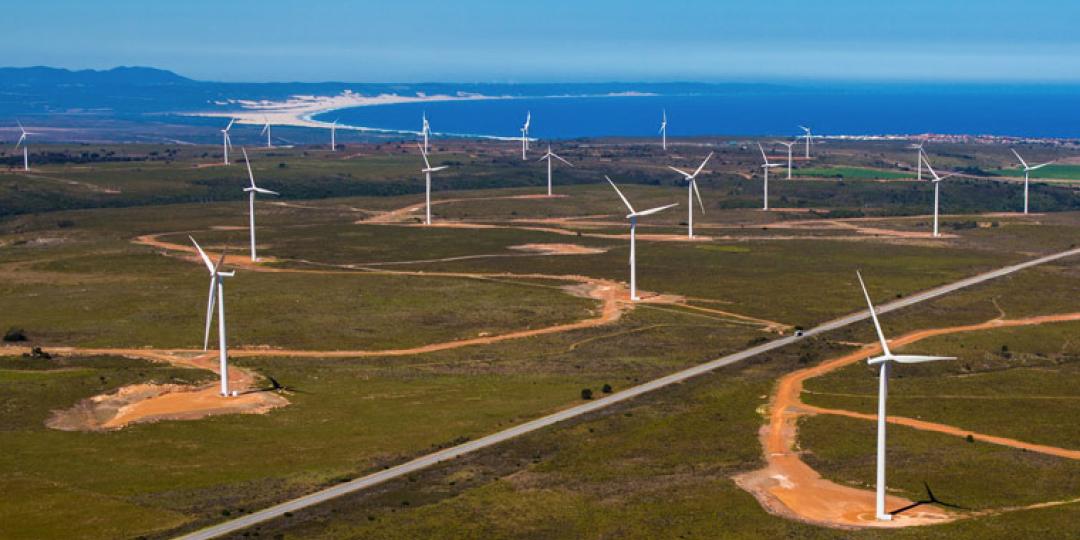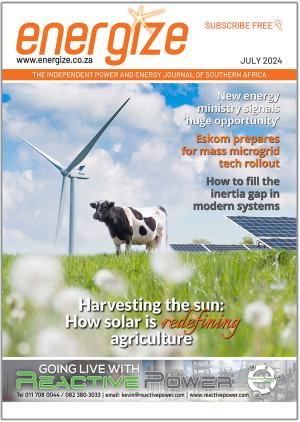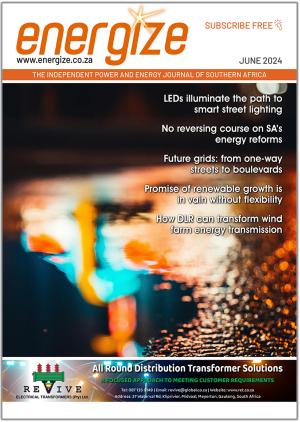One of the five Eastern Cape wind farms, working to conserve natural habitats and protect local wildlife through the establishment and funding of the Greater Kromme Stewardship (GKS) is about to commence its second Shut-Down-On-Demand trial next month. Jeffreys Bay Wind Farm is implementing a conservation programme, Shut Down on Demand (SDOD), aimed at mitigating loss of priority species on the wind farm.
The SDOD system is implemented through a team of bird monitors notifying the wind farm’s on-site operations room to switch off individual wind turbines when the priority species are in the vicinity and switch on again once the bird has passed by. This SDOD system, which was piloted last year (2021), resulted in a number of shut downs being successfully called for.
“We are very proud of the programme and look forward to commencing our second trial. Last year we used naturally raised, higher vantage points, but we’re hoping to have raised platforms built this year for our monitors,” explained Marli Schoeman, Environmental Specialist for Jeffreys Bay Wind Farm, Globeleq South Africa.
The programme involves a team of three permanent monitors and twelve seasonal monitors. The team was trained by a specialist consultant to recognise the identified priority species and they have learned more through experience and from working with local birders.
The Black Harrier is the foremost priority species looked out for, but there are two other endangered species (Martial Eagle and African Marsh-Harrier) on the priority list, in addition to five less threatened species, namely: Lanner Falcon; Secretary Bird; Blue Crane; White Bellied Korhaan; and Denham’s Bustard.
Prior to the SDOD programme, Jeffreys Bay Wind Farm has been proactively participating in a bird and bat monitoring study that has run continuously since 2014. The wind farm has always been committed to monitoring bird and bat fatalities, which includes daily monitoring. Jeffreys Bay Wind Farm has always been supportive of monitoring and of any measure contributing to studies on bird life in the country.
Since its inception six years ago, the GKS has been widely recognised for securing more priority land for conservation in the Kouga region than any other independent conservation body in the last fifty years. The organisation is a partnership of five local wind farms, who are its funders, and an environmentalist NGO.
About the Greater Kromme Stewardship initiative
Since its inception six years ago, the Greater Kromme Stewardship initiative has been widely recognised for securing more priority land for conservation in the Kouga region than any other independent conservation body in the last fifty years. The organisation is a partnership of five local wind farms, who are its funders, and an environmentalist NGO.
- The organisation was set up to pursue the declaration of new protected zones within conservation priority areas.
- The wind farms are major role players in the region and as producers of renewable energy they are at the forefront of the move to sustainable use of natural resources.
- Through the GKS initiative, the wind farms are working to secure valuable biodiversity assets and resources in the broader landscape as a means of off-setting or compensating for their environmental impacts, allowing for truly just and sustainable renewable energy in the region.
- The wind farms include: Gibson Bay Wind Farm, Jeffreys Bay Wind Farm, Kouga Wind Farm, Oyster Bay Wind Farm, and Tsitsikamma Community Wind Farm
Contact Greater Kromme Stewardship, Phone 072 534 5914, wentzel@conservation-outcomes.org, www.gksinitiative.co.za
















